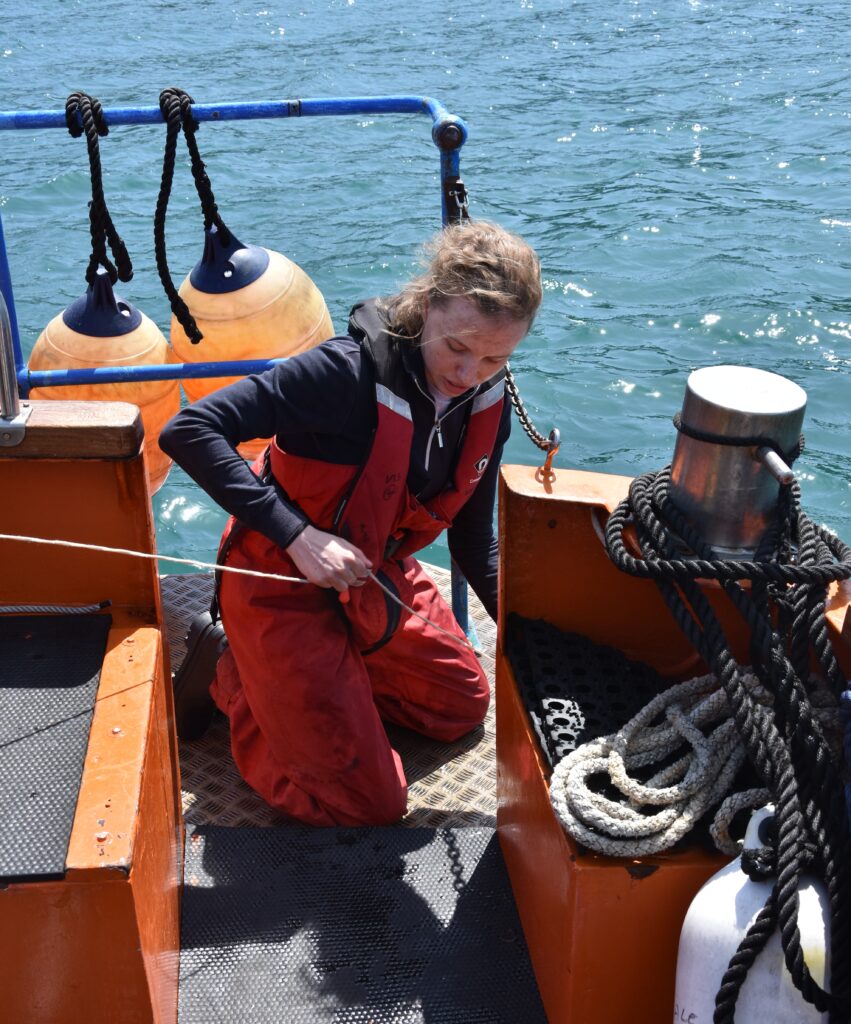(she/her)

Since I was little, I was fascinated by marine biology. I completed a BSc in Genetics and MRes in Biosciences at Aberystwyth University where I focused on utilizing environmental DNA to monitor non-indigenous marine species. During my undergraduate degree, I worked with Dr David Wilcockson on crustaceans’ endocrinology and became familiar with biological clocks in marine organisms, which I enjoyed working on. After becoming interested in bioinformatics during MRes, I chose to focus on utilizing molecular biology and bioinformatics approaches to study marine animals. My prior experience with biological clocks in marine species helped me decide to apply for my current project, which I plan to develop to its full potential!
The molecular basis of daily and seasonal migration behaviour in the copepod Calanus finmarchicus in the face of climate change
PI and Institution:
Marius Wenzel, University of Aberdeen
PhD aim:
Calanus finmarchicus is a copepod commonly found in North Atlantic Ocean, where it dominates the zooplankton biomass and is an important carbon source for higher trophic levels. This copepod displays circadian behaviour called diel vertical migration (DVM), where the animals dive to depth during the day and swim to the surface during the night to feed. The C. finmarchicus goes through a life cycle stage called diapause, which is a seasonal long resting stage, where juveniles in late spring migrate from the surface feeding grounds to deeper waters (~400-1000m) where they remain inactive for 7-8 months. Both these migration processes are thought to be regulated by environmental cues such as light and temperature that can be susceptible to disruptions due to climate change. The lack of understanding about physiological and molecular processes affecting variations in DVM and diapause between individuals is a major barrier to understanding how Calanus populations might respond to changes in environmental cues due to range shifts to higher latitudes.
This project aims to examine the functional genetic variation associated with differences in DVM and diapause behaviour in Calanus finmarchicus to better understand how this species may respond to climate-change induced range shifts.
PhD objectives:
- To examine what genes change expression in response to environmental cues that are thought to trigger diel migration and diapause.
- To assess if there is evidence of natural selection at such key candidate genes in geographically isolated Calanus populations or populations structures in latitudinal clines.
- To determine if epigenetics or epitranscriptomic mechanisms such as DNA methylation or RNA spliced-leader trans-splicing are involved in synchronizing daily migration and diapause.
Contact details:
Institutional email: k.zejc.23@abdn.ac.uk
LinkedIn: Katarzyna Zejc
Twitter/X: @KZejc
Conference presentations:
19th MBA Postgraduate Conference 2023, Aberystwyth.
